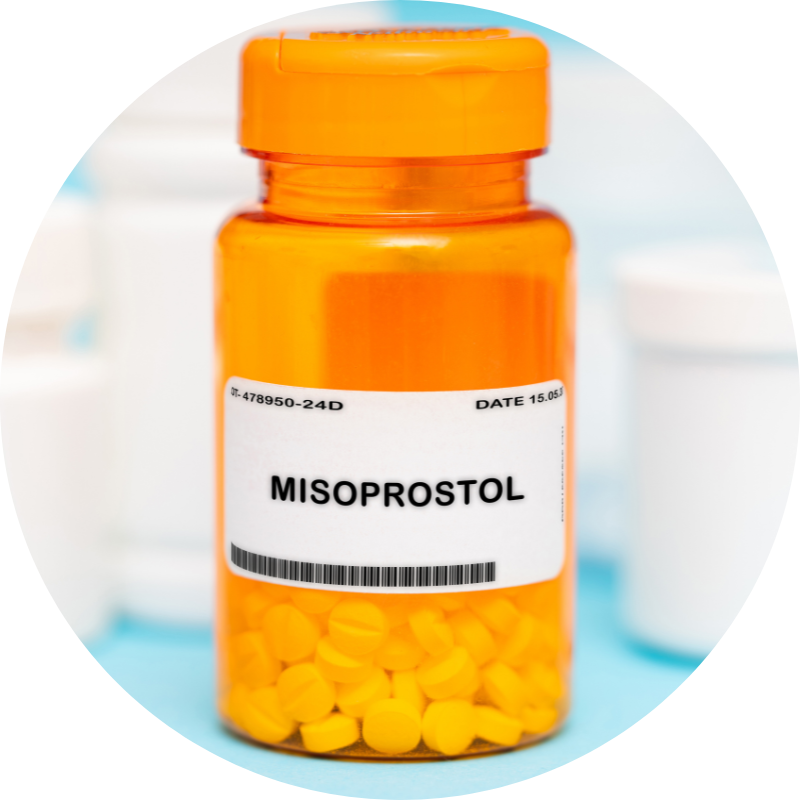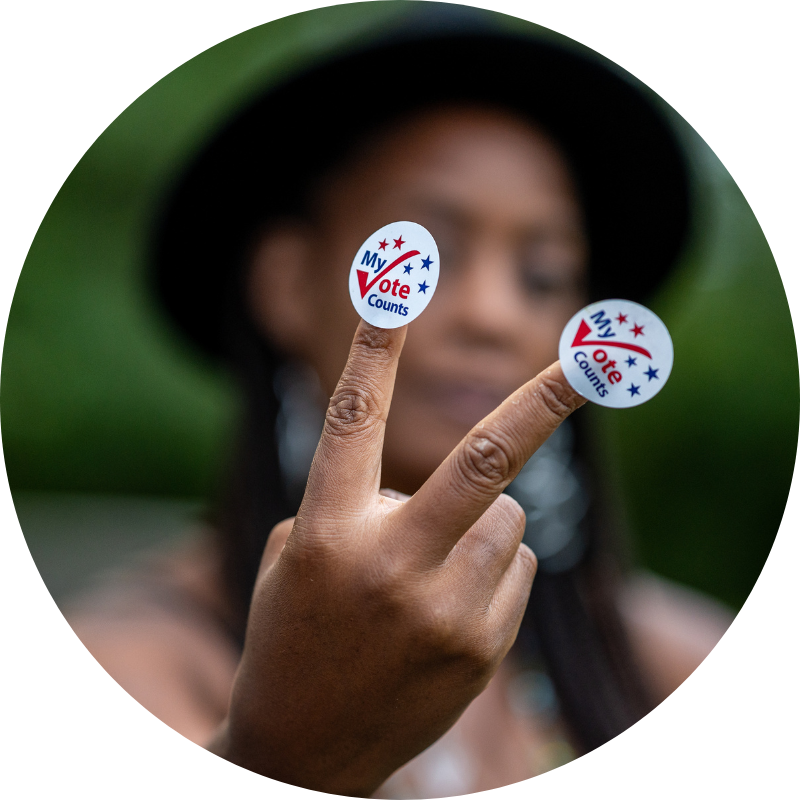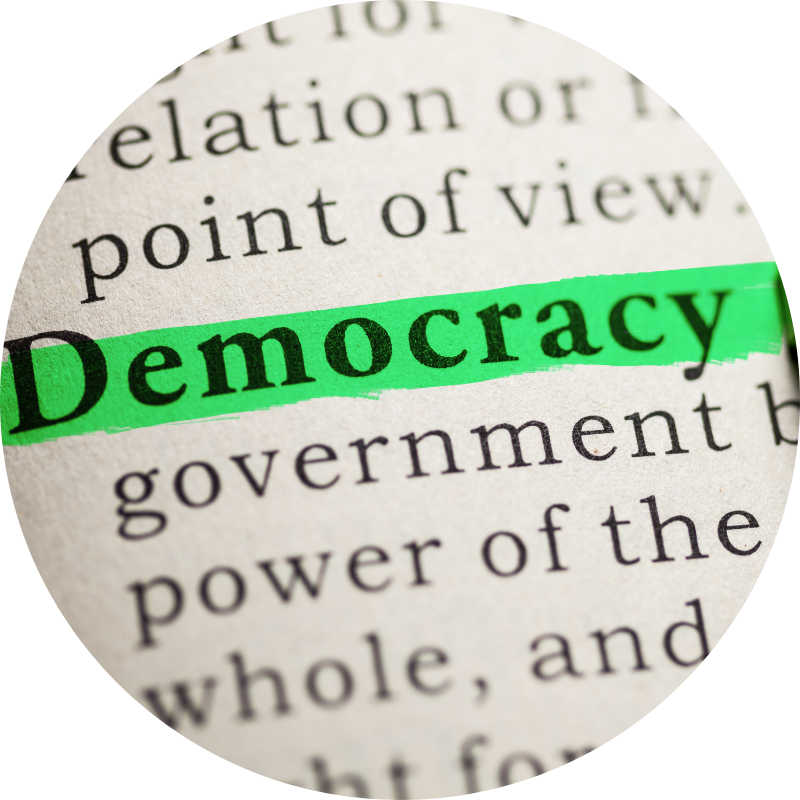SCOTUS Impact on Reproductive Justice
We have come to the end of another SCOTUS term which, once again, included numerous, highly consequential decisions that will have longstanding impacts on our fight for Reproductive Justice. The Court’s opinions this term will directly impact sexual and reproductive health care, gun violence, environmental and housing justice, immigration justice, voting and democracy rights and much more.
At PRH we strive to uphold and incorporate the tenants of Reproductive Justice. Reproductive Justice refers to our human right to personal bodily autonomy, the right to have children, not have children, and to parent the children we have in safe and sustainable communities. This is why we are not only concerned about the outcomes of the Supreme Court cases which impact mifepristone and emergency abortion access. We are also concerned about the Court’s opinions on firearms, environmental safety, criminalization of people who are unhoused, and attacks on voting rights and democracy. Stick with us as we walk through some of this term’s high profile SCOTUS opinions. It’s been a doozey of a summer.
SCOTUS & Abortion

Just two years since Dobbs, the Supreme Court took up not one, but two cases this term that would directly impact access to abortion care. Remember when the Court said it was going to get out of the abortion game? Cute. PRH has been closely following these cases and submitted amicus briefs to the Court in support of access to care for each case. The first case, Food and Drug Administration v. Alliance for Hippocratic Medicine challenged the FDA approval of mifepristone, one of two medications commonly used in medication abortions. Check out our previous blog post recapping the case. The Supreme Court ultimately dismissed the case on standing, finding that the plaintiffs lacked the qualifications necessary to challenge the FDA’s actions regarding the regulation of mifepristone. In other words, they should not have been allowed to bring this case forward in the first place. This was a tepid victory for abortion access as it allows mifepristone to remain available as-is nationwide. However, we know that this merely kicks the can down the road for continued and future attacks on mifepristone and medication abortion.
The second case concerning access to abortion care before SCOTUS this term was Moyle v. United States, which asked the Court to consider whether the federal Emergency Medical Treatment and Labor Act (EMTALA) conflicts with Idaho’s abortion ban. The Court did not issue an opinion on the substance of the case and instead held that the case was improvidently granted. This means that the federal district court’s order enjoining Idaho’s abortion ban as it conflicts with EMTALA will remain in place while the case continues. While it is a relief that pregnant Idahoans are once again able to access emergency abortion care under EMTALA, the Court missed a critical opportunity to make clear that EMTALA preempts abortion bans everywhere. Access to emergency abortion care remains at risk, and we will likely continue to see attacks against emergency abortion care and there is potential for the Supreme Court to hear either this case or a similar case as soon as next year.
SCOTUS & Firearms

The Supreme Court heard two key cases about firearms this past term, and the results were a mixed bag.
So, let’s start with some good news!
In the case of United States v. Rahimi, which we highlighted in an October blog post, the Supreme Court held that a federal law which makes it a crime for people subject to a domestic violence restraining order to own guns does not violate the second amendment. This is good news, especially for survivors of domestic violence. This means that judges will continue to have the authority to order the removal of firearms from the possession of people subject to domestic violence restraining orders. The U.S. has a high prevalence of intimate partner violence, and the presence of a firearm increases the risk of domestic violence related homicide by 500%. What’s more, homicide is the leading cause of death among pregnant and postpartum people, and these deaths are often linked to intimate partner violence and firearms. By upholding the constitutionality of this law, survivors will continue to have access to this lifesaving relief.
Now for the bad news.
The Supreme Court found that the Bureau of Alcohol, Tobacco, Firearms and Explosives (ATF) under the Trump Administration overstepped and exceeded its statutory authority by issuing a rule that classified a bump stock – a gun attachment that increases a semiautomatic weapon’s rate of fire – as a machine gun. The ATF issued this rule and enacted a ban on bump stocks after the 2017 Las Vegas mass shooting. Gun violence is a public health crisis and a reproductive justice issue. Report of mass shootings and gun violence has become far too commonplace in recent years, and in 2022 there were more than 48,000 firearm-related deaths. In response to this rising epidemic there has been little action from Congress to implement gun safety policies. The Court’s decision here in Garland v. Cargill strips away one of few administrative actions aimed at addressing gun violence and does nothing to increase community safety.
SCOTUS & Environmental Justice

Just this April we published a blog post for Black Maternal Health Week about the intersection of environmental justice and Reproductive Justice. Environmental justice includes both our natural and built environment, including impacts of pollutants and toxins in our air. Knowing the negative health impacts of air pollution, the Environmental Protection Agency (EPA) established the “good neighbor” rule. This rule required “upwind” states to create a plan to prevent pollution and smog from power plants and other facilities from being blown to “downwind” states in an effort to limit air pollution and prevent pollution related deaths, asthma symptoms, and ER visits. The EPA was able to establish this rule because of Chevron deference, which was established in 1984 and allows government agencies to interpret the laws they administer and issue rules when those laws weren’t clear. Unfortunately, the Supreme Court overturned Chevron in Loper Bright Enterprises v. Raimondo and blocked the EPA’s “good neighbor” rule.
Beyond the impact to the EPA’s power in this case to protect the environment, overturning Chevron cuts back federal agencies authority to interpret laws and gives more power to the courts. This decision threatens administrative rules and regulations in countless areas including the environment, health care, and more. The ability of federal agencies to use rulemaking to create policy has been essential, and now agencies will have a significantly harder time defending those rules in court. The attacks on the power of agencies to take progressive actions like the EPA in this case will continue to grow without the authority of Chevron.
SCOTUS & Housing Justice

Reproductive Justice is inextricably linked to housing justice. The right to live in safe and sustainable communities is undermined by the lack of safe and affordable housing. Further, Reproductive Justice calls for the end of mass incarceration and over policing of marginalized communities, which includes people who are unhoused and living in poverty.
However, the Supreme Court utilized this term to perpetuate criminalization and to attack people living with housing insecurity. It’s cruel and that’s the point. In City of Grants Pass v. Johnson, the Supreme Court held that Grants Pass city ordinance banning unhoused residents from sleeping outdoors does not violate the Constitution’s 8th Amendment protection against cruel and unusual punishment. This decision paves the way for cities and states across the country to criminalize people without housing via bans on public camping. This comes at a time when the United States is facing a housing crisis – cost of housing is skyrocketing and there is a massive housing shortage. Criminalizing people for being unhoused only makes it more difficult for them to secure permanent housing, as a criminal record creates additional barriers to accessing housing and employment, setting up a cycle of violence. This decision further legitimizes the criminalization of poverty and strengthens the prison industrial complex and the carceral system.
SCOTUS & Immigration Justice

A key aspect of Reproductive Justice is the right to marriage and the right to safety and security for one’s own family. The Supreme Court, once again, issued a decision to undermine the tenants of reproductive and immigrant justice. In Department of State v. Muñoz, the court held that a U.S. citizen does not have a constitutional interest in their non-citizen spouses being admitted to the country. In this decision, the Court essentially ruled that there are virtually no constitutional limits on the power of the federal government to bar non-citizen spouses of U.S. citizens from being able to obtain visas and enter the country, effectively denying these couples the right to marriage. As Justice Sotomayor writes in her dissenting opinion, this decision is a “depart[ure] from longstanding precedent and gravely undervalues the right to marriage in the immigration context.”
SCOTUS & Voting Rights

Our elected officials exert immense power over our futures. They are responsible for passing laws that impact our right to bodily autonomy including sexual and reproductive health care and gender-affirming care, environmental policies that impact the air we breathe and water we drink, community safety measures, housing policies, and so much more. With our vote we determine who represents us in our state and federal government. Or at least that is how voting is meant to function were it not for gerrymandering, the undemocratic process of guaranteeing election outcomes by dividing communities to weaken their vote.
The Supreme Court has previously weighed in on gerrymandering with mixed results. This year, in Alexander v. South Carolina State Conference of the NAACP, the Supreme Court was asked to determine whether the South Carolina legislature 2022 redistricting map, which moved tens of thousands of Black voters to a different district, constitutes racial gerrymandering even if the legislators claimed that their intent was political gerrymandering. The Supreme Court reversed a lower trial court earlier finding that the redistricting was unconstitutional and sent the case back for further proceedings at the district court, which previously issued an order allowing South Carolina’s racially gerrymandered map to remain in place for the 2024 elections. The Supreme Court’s decision will make it more difficult for voters to raise future racial gerrymandering challenges in federal court.
We would be remiss not to acknowledge that voting and our democracy requires a nuanced conversation, which we discussed in this blog post.
SCOTUS & Future of Democracy

The Supreme Court issued one of the biggest blows to democracy in Trump v. United States where the Court held that a president has immunity from prosecution for official acts. In this decision, the Supreme Court held that Trump was immune from criminal prosecution for his actions to subvert the 2020 election. In the decision, Chief Justice Roberts declared that former presidents have “absolute” immunity from criminal prosecution over actions that fall within their “core constitutional powers.” This decision will have severe impacts on other charges currently being brought against Donald Trump, including the Georgia election corruption case.
Although this decision was about charges being brought against Former President Trump, the impact of this decision will have lasting devastating impacts for all future presidencies. The Court’s decision to give presidents criminal immunity for anything deemed “official acts” completely undermines the basic structure of our government and robs the people’s ability to stop tyranny of those sitting in the Oval Office. As Justice Sotomayor says in her dissenting opinion, “Never in the history of our Republic has a President had reason to believe that he would be immune from criminal prosecution if he used the trappings of his office to violate the criminal law. Moving forward, however, all former Presidents will be cloaked in such immunity. If the occupant of the office misuse official power for personal gain, the criminal law that the rest of us must abide will not provide a backstop. With fear for our democracy, I dissent.” We are fearing for the future of democracy too.
What’s Next with SCOTUS
This isn’t even half of the decisions the Supreme Court issued this term! It’s clear now more than ever that the Supreme Court’s unchecked power has huge and often devastating impacts on the freedom and rights of individuals. As we gear up for elections and a new SCOTUS term, it’s crucial to pay attention to the cases being brought in front of the Supreme Court and the lower courts. In particular, PRH will be following United States v. Skrmetti, where the Court will be ruling on Tennessee’s gender affirming care ban, and the ongoing litigation in Food and Drug Administration v. Alliance for Hippocratic Medicine, which was remanded to the Fifth Circuit for further consideration.
Adrienne Ramcharan Assistant Director, State Policy
Mackenzie Darling If/When/How Federal Reproductive Justice Fellow

